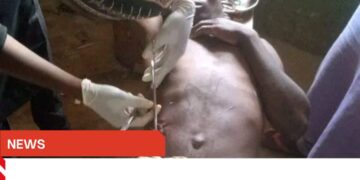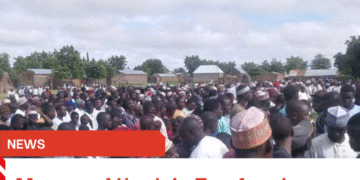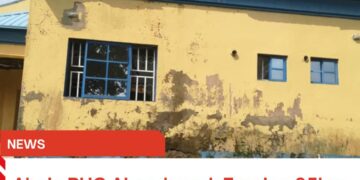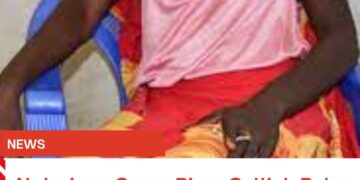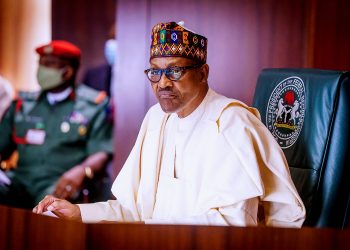Central Bank of Nigeria has allayed any fear by Nigerians despite the scarcity of foreign exchange while affirming that there is enough forex for business owners, travelers, and parents with students abroad to meet their financial obligations.
CBN Governor Godwin Emefiele stated made this declaration at the 278th Monetary Policy Committee held recently in Abuja.
He said that about $80million were disbursed to banks every week to enable Nigerians to meet their forex responsibilities.
Emefiele pleaded with Nigerians to report any bank withholding forex to a special call centre of the apex bank.
He said “Part of the measures that we have adopted is that weekly, the CBN disburses not less than $80million to the banks either for Personal Travel Allowances or payment of school fees.
We have created a complaint desk where you can call us or call some of our people who will respond. It is like call centres, where people can call that they went to a particular bank and they didn’t get money to pay school fees or they didn’t get money to travel.”
Emefiele also said Nigeria had not changed from its foreign exchange management policies.
He said, “Nigeria has not changed from its foreign exchange management policies. Nigeria remains on a managed float.
‘What does a Does managed float regime mean? That the Central Bank, which has a core mandate for foreign exchange management in the country, will run the market, see how the market operates depending on its readings.
“It might interest us to know that since January, the CBN has not intervened in the I&E window.
The market has always operated within a band of around N409 and at some point, it attained N412, N413 and it began to move and that is the way it is supposed to go.
Statistics from the central bank, have, however, shown that Nigeria’s foreign reserves started this year with a $35.64 billion balance. But currently stands at $34.62 billion as of 25th March 2021, with a differential of $1.02 billion slumps.
In our check, our correspondent observes that the nation’s foreign reserves dropped by $352. 8 million when compared the current figure of $34.64 billion to the $34.9 billion that it stood at the beginning of March 2021.
Although, statistics from the official website of the apex bank showed that the reserves had earlier in the month declined by 29 percent on Monday, 8th March 2021, when it stood at $34.74 billion against the figures it recorded 10 days earlier.
It is worth noting that Nigeria’s external reserve has depleted to its lowest position in 10 months, which was as of 11th May 2020 when the reserve was at $34.66 billion.
Industry experts believe that the chief reason that could have accounted for the reduction in foreign reserves can be attributed to the reduction of Foreign Portfolio Investors (FPIs) which caused by the devastating impact of Covid-19 as well as vulnerability to falling oil prices, although oil prices have appreciated in the international market of late.
The several exchange rates in operation have been relatively stable, as oil receipts (including oil-related taxes) form significant contributors to external reserves.
The crude oil price has currently averaged US$65/b in March, which further confirms the reasons why CBN insists that Nigerians shouldn’t panic as the slight depletion has a limited impact on the stability of the forex market.
Also, OPEC has proposed a new agreement on output restraint, which, if endorsed by Russia and others would provide some comfort.
It would be recalled that in Q4 2019 the CBN barred domestic non-bank players from the market in OMO bills. The returns on these bills are among the highest available anywhere for FPIs. However, the current global health crisis appears to have slowed inflows from FPIs and prompted some to exit the market.
The I&E window has therefore become increasingly dependent upon local sources (including CBN) for fx supply. Based on data from FMDQ, inflows from FPIs in February amounted to US$1.0billion, accounting for 25 percent of the total inflow. The CBN’s share was 51per cent (US$2.1bn) of inflows at the I&E window.
The CBN has also supported the fx market by providing liquidity through various interventions. For instance, its secondary market intervention sales (wholesale and retail combined) totaled US$3.2bn in Q4 2019, compared with US$3.3bn in the third quarter before the Covid-19 pandemic struck
Statistics have also shown that the naira to dollar rate at the official price stands at $1 to N380 as of Friday 26 March 2021.
Commenting on the development, a finance expert, Prof. Uche Uwaleke said it was good that the Central Bank comes out clear to clarify and douse tensions.
He said many students going back to school abroad have been uncertain about where to access forex and pay basic financial obligations.
“The slight depletion in the foreign reserves is not something that is out of the ordinary. In fact, even powerful economies like the United States have reported a decline in their reserves due to one or two economic challenges.
“However, it’s reassuring that the increase in oil prices which is a major contributor to the reserves will surely improve the value reserves as time progresses. Because the Covid-19 pandemic has dealt a huge blow to the reserves,” he said.
The finance expert, however, urged the Central Bank of Nigeria to ensure that the forex reaches the right people who need it, especially for educational purposes.
Over the past three years, the CBN’s FX reforms have continued to improved liquidity.
Just recently, the CBN introduced a “Naira4Dollar” scheme in favour of diaspora Nigerians who are seeking to send in money into Nigeria. This is aimed at ensuring that remittance flows and diaspora investments become a significant source of external financing.




